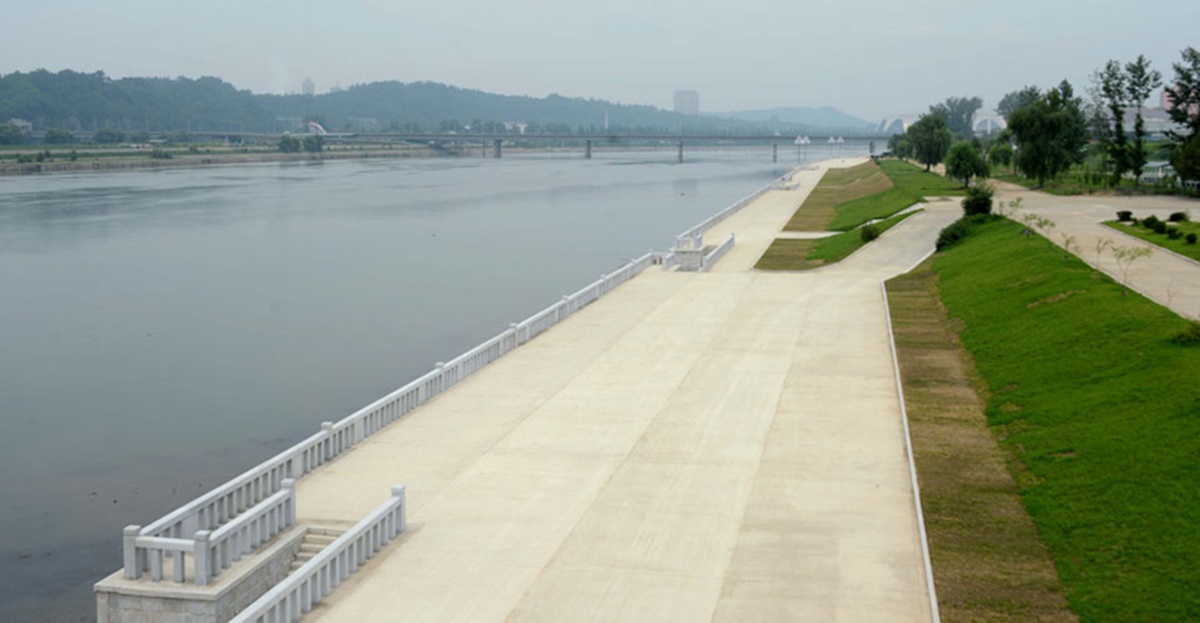
Tap water has been cut off in some areas of South Pyongan Province recently and local residents are taking water out of an area waterway to use at home.
A South Pyongan Province-based source reported on March 25 that the water mains running near the Coal University in Yokjon-dong, Pyongsong, Okjon-dong, Dumu-dong, and Yangji-dong broke, leading to a flood. The lack of electricity and reservoir water has led to a situation where local residents are only provided with one day’s worth of water per week.
The UN Population Fund (UNFPA) reported in its Socio Economic Demographic Health Survey (SDHS) in 2014 written in conjunction with North Korea’s Central Bureau of Statistics that while water is supplied to 82.1% of the country, the poor condition, lack of management, and paucity of electricity, among other factors, means that water is not provided to all households.
“The lack of tap water means that more and more people are going to the Taedong River to get water. They use it to wash and bathe, and boil it to drink,” the source said, highlighting the poor state of infrastructure in North Korea.
While the Taedong River is some 10 km away from Pyongsong, people walk or drive to the river to get the water, a separate source in South Pyongan Province said.
“The lack of tap water has also led to a grassroots industry sprouting up, selling water from the river,” she said.
The poor condition of the water supply and the lack of treatment facilities means that tap water in North Korea is generally unsafe to drink. The increase in demand for clean water has led to a growing commercialization of water-related products.

The North Korean authorities are also making efforts to create new bottled water factories and improving production at existing factories. The authorities lack the funds needed to improve the existing water infrastructure, so they are instead focusing their efforts on producing bottled water for sale.
Kim Jong Un visited the Ryongaksan Spring Water Factory in 2016 and ordered the construction of drinking water factories in all of the country’s provinces, cities and counties. Soon after, five factories, including the Daesongsan Fresh Water Factory and the Chongjin Fresh Water Factory, were either newly constructed or had their facilities expanded.
Without fixing the basic water works infrastructure of the country, however, the issue of providing drinking water to North Koreans will reach a breaking point.
A 500 ml bottle of drinking water in North Korea costs 1,500 to 2,000 won, which means that most North Koreans cannot afford it.
The polluted water provided by North Korea’s water works infrastructure is so bad that it is affecting people’s health.
During a presentation at the international water industry conference ‘2019 Water Korea’, held at Daegu’s EXCO on March 21, Lee Ho-sik, a professor at the Korea National University of Transportation (KNUT), stated during a special session on North Korea’s water system that “North Korea’s water treatment plants appear to be barely operational due to the country’s severe electricity issues and the lack of materials and parts needed to operate these facilities,” and that “23.5% of the water supplied to the people as drinking water is infected with e.coli, while only 16.5% of the population drinks water that is treated properly.”
“People in North Korea have to boil their tap water because the water quality is so poor,” Professor Lee added. “Water from the country’s water works facilities is not safe to drink and the water is so contaminated that it is a source of many different types of illness.”




















